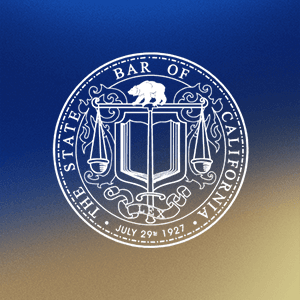Double Jeopardy
Double Jeopardy is a fundamental United States Constitutional doctrine derived from the second clause of the Fifth Amendment that protects a defendant (an accused) from being tried and punished more than once for the same crime. The Double Jeopardy clause is a type of procedural defense that prohibits the government from trying to convict a defendant of a crime for which he or she has already been acquitted or found not guilty. It also prevents a second conviction if the defendant has already been convicted and it precludes multiple punishments for a single crime. It forces the government to abide by the results of its own criminal justice system.
The Double Jeopardy clause is echoed in California Penal Code section 687: "No person can be subjected to a second prosecution for a public offense for which he has once been prosecuted and convicted or acquitted." Double Jeopardy does permit prosecution by separate sovereigns, as by the federal government and a state government. For example, a defendant may be prosecuted in federal court for a bank robbery and also prosecuted in state court for the same bank robbery. Prosecution by both the federal and state governments would not violate the Double Jeopardy clause because they constitute different courts of law and involve different jurisdictions.
The purpose of the Double Jeopardy clause is to protect citizens against government abuse. The government possesses broad resources and power; prosecutors could potentially harass citizens by seeking multiple prosecutions against a citizen until obtaining a conviction, even if that citizen was in fact innocent. Prosecutors could repeatedly prosecute a defendant who had already been acquitted. This burden would cause a defendant financial hardship and psychological damage from the uncertainty of never-ending criminal proceedings.
A Double Jeopardy issue should be raised as a procedural defense when a defendant has been in "jeopardy." This occurs when "jeopardy attaches." Some of the circumstances where jeopardy attaches include but not limited to:
- Jury Trial – Jeopardy attaches after jury selection is complete and the jury is sworn in.
- Bench Trial (a trial before a judge without a jury) – Jeopardy attaches when the first witness is sworn in.
- Discharge of a Jury – The unwarranted discharge of a jury without the consent of a defendant raises the Double Jeopardy defense if that same defendant is retried.
- Acquittals – If a defendant is acquitted (Not guilty verdict at trial) on the charges then the prosecution cannot appeal the verdict to reprosecute the same case.
- Civil Proceedings – Jeopardy does not attach in civil proceedings other than juvenile proceedings. Example: If a defendant is acquitted on drug charges, the government may seek forfeiture of the money that was seized when the defendant was arrested.
- Convictions – Any conviction for a specific offense bars the government from reprosecuting the defendant for the same offense based on the same facts.
- Retrial After Conviction & Appeal – If a convicted defendant wins a new trial after a successful appeal, the Double Jeopardy doctrine does not bar a reprosecution of the same case. However, the prosecution is barred from seeking more serious charges and greater punishment at the new trial.
- Guilty Pleas – Jeopardy attaches when a guilty or no contest plea is entered by the defendant. If a court does not accept the plea then the court may vacate the plea and jeopardy would not attach. Jeopardy also would not attach if a defendant pleads guilty in accordance with a plea bargain and subsequently breaches the plea deal. The defendant could then be tried on the original charges.
- Legal Necessity – As a general rule, reprosecution is not permitted when a jury is discharged after jeopardy has attached but before a verdict is entered unless there is Legal Necessity. Legal Necessity refers to circumstances where a jury can be dismissed. Some of these circumstances include the absence of a judge, juror, or a defendant or where the judge disqualifies himself or herself for lack of impartiality.
Double Jeopardy is a complicated legal doctrine that occasionally plays out in state and federal prosecutions. If you have an issue concerning Double Jeopardy, consult with a knowledgeable and experienced criminal defense attorney to learn more about Double Jeopardy, your rights, defenses, and the criminal justice system.
Client Reviews
-
God Bless you Stephen, wish you all the successes in life.
“Stephen is a great contact and extremely helpful and knowledgeable. I am glad that I was his client in the past. Top lawyer, top man. God Bless you Stephen, wish you all the successes in life.”
-
Don't hesitate to contact them!
“I was referred to this group of Attorneys. I was started with a low cost made arrangements. My case had to do with assault allegations. The case was dismissed they helped me not to loose my daughter to the system.”
-
Never Talk To Police
Know your rights when questioned by law enforcement.
Defend Your Rights -
Learn What To Do When Confronted and Interviewed By The Police
Honest & practical advice during a free initial consultation. Call now to get started!
Read More -
Don't Plead Guilty!
A plea bargain may not be in your favor. Let us help evaluate all of your options.
Learn More








